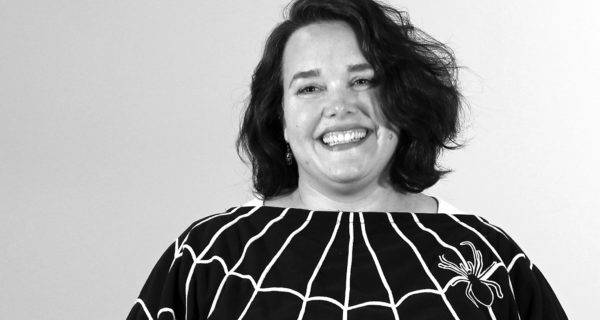
Center Scientist Stacey Schaefer, in collaboration with the study’s lead researcher Carol Ryff at UW–Madison and Center for Healthy Minds Founder Richard Davidson, helps manage the neuroscience portion of a nationwide study that explores well-being across the lifespan.
The project, called Midlife in the United States (MIDUS), has followed thousands of adults for the past 20 years to learn how their experiences influence their physical and psychological health.
Schaefer shares why purpose in life and people’s exposure to adversity have come up as themes in the research.
What do we know so far about the research that links purpose in life to well-being?
Schaefer: One of the things to come out of the study is if you look at all age groups from 20 to 70-year-olds, if you have greater purpose in life, you’re less likely to be dead 10 years later. Fascinatingly, it doesn’t matter if you’re older versus younger, or if you have a chronic condition or disease, having low levels of purpose in life increases your risk of dying. Other researchers studying different populations have also found this effect.
What’s the background for this research?
This research has its roots in the theoretical work of Carol Ryff also here at UW–Madison, who is the lead researcher on MIDUS study. When she developed her concept of psychological well-being, she had six major components based on the work of ancient philosophers to modern day scientists, one being purpose in life and the others being personal relation to others, self-acceptance, autonomy, environmental mastery and personal growth.
In terms of biomarkers of health, like better cardiovascular or immune function or lower rates of disease, purpose in life has been a predictor. And there have been a growing number of studies, one of which is a part of MIDUS, showing that purpose in life is a big predictor of mortality in our study sample.
What’s a good example of a person’s purpose in life?
It’s really individual. One of the most important theorists as to the importance of finding meaning in life is Victor Frankl, who was a Holocaust concentration camp survivor. He lost his family in the Holocaust, and yet survived and continued his work as a psychiatrist afterwards. His therapeutic approach stressed the importance of finding meaning, even in suffering. I think his survival of both the concentration camp and the loss of his family and continued work helping people is the most profound example possible of someone whose purpose or meaning in life provided resilience to the extreme adversity he experienced.
For me, I have a 7-year-old son who gives me a huge purpose in life in that I need to be here for him. For some people, it can be something as simple as getting older and your children may not need you as much, but you may seek the companionship of a pet. The pet then needs you. Or it could be your career volunteer work, or goal of spreading well-being and kindness, or perhaps you want to make a lot of money. It depends on the person what provides meaning.
"Fascinatingly, it doesn’t matter if you’re older versus younger, or if you have a chronic condition or disease, having low levels of purpose in life increases your risk of dying."
So purpose in life has some sort of protective property… Have we learned how the brain and body play into the equation?
It’s very early, and we don’t have much brain data on this, but what we have found is an interesting relationship between emotional recovery and purpose in life. In the lab, we’ve used a task that measures eye blink startle, or the magnitude of eye blinks when someone is startled by a loud burst of white noise. The magnitude of eyeblinks varies depending on whether someone is viewing (or recently viewed) positive, neutral, or negative pictures. We use the magnitude of their eyeblink to obtain a measure of their emotional response to the pictures.
What we saw was that purpose in life really didn’t predict differences in people’s reactions to the unpleasant pictures, but it did after the picture went off. So those people who had greater purpose in life had smaller startle eyeblink responses after the picture was off (and the computer screen was black and the room was dark) than people who had lower purpose in life. Basically, higher purpose in life was associated with smaller startle responses after negative provocations, suggesting those people who have greater purpose in life were able to get over the negative provocation more quickly.
How can we cultivate more purpose in life?
An Italian group has developed well-being interventions focused on Carol Ryff’s theories of well-being, and they are currently testing their intervention’s effectiveness. So far, they do appear helpful. Personally, my interpretation is that realizing what gives you meaning and purpose – recognizing it and acknowledging it – is important. If something is really important to you but you ignore it, that can be detrimental. For example, if you believe in the current societal standards of success, but your family is still more important to you than your career, it’s really hard for a lot of us to juggle time, to balance work and our families. Working 80 hours a week and trying to “have it all” may not be better off for your family, your health and well-being – or your longevity.
Instead, think about what gives your life meaning. Do what makes you happy or makes you fulfilled, and make sure to save time for it. It may help you to start your day thinking about your purpose in life, or thinking about what gives your life meaning when trying to refocus after a stressful or unpleasant experience.






